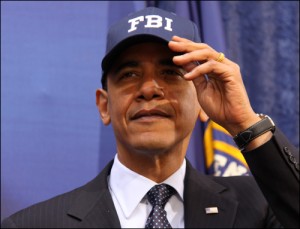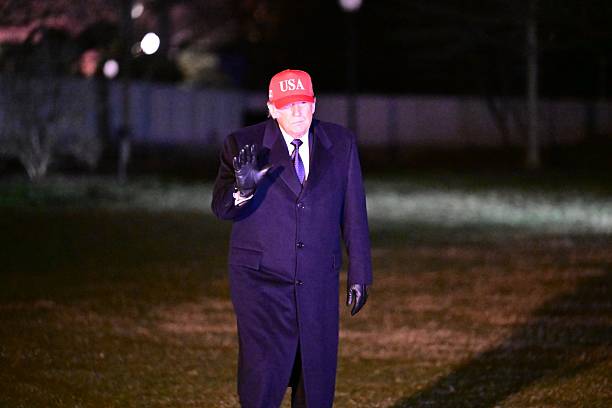(ThyBlackMan.com) Outgoing FBI director Robert Mueller was asked sharp questions by a House Judiciary Committee panel about the FBI’s massive collection, intercept, and listening in on millions of phone conversations. There were two obvious concerns behind the questioning and one concern that should be a concern to all given the FBI’s past. The two obvious ones are the effectiveness of the phone surveillance operation in light of the failure to head off the Benghazi and Boston Marathon attacks. The other is the very real danger of privacy infringement on millions of Americans that have nothing to do with any real or suspected terrorist activities. The concerns were pretty much the same ones that President Obama has been assailed on. He has been forced to defend the administration’s actions in the phone surveillance operations. The concerns are hardly new.
President Obama has let stand and even expanded most of the tough provisions in the Patriot Act that permit government agencies to check records of business and citizens groups with minimal checks on how the information can be used and more particularly used against. Individuals can still be targeted for monitoring and surveillance if suspected of being a potential terrorist. Organizations and individuals can still be slapped with so-called roving wiretaps (taps that can be placed on an individual or group anywhere, anytime) again based on the thinnest evidence or suspicion. President Obama has been assailed, challenged, and now sued by the ACLU for the National Security Agency phone surveillance operations.
potential terrorist. Organizations and individuals can still be slapped with so-called roving wiretaps (taps that can be placed on an individual or group anywhere, anytime) again based on the thinnest evidence or suspicion. President Obama has been assailed, challenged, and now sued by the ACLU for the National Security Agency phone surveillance operations.
The unstated concern is the history of the FBI’s abuse of its spy powers. At times it badly crossed the line between the need to defend and protect against legitimate security threats and just plain citizen spying for citizen’s spying sake, and worse for political intimidation and harassment. This sordid history bears recounting in light of the current controversy over the FBI’s intercept of thousands of phone calls during the past decade.
The original FBI spy program was the COINTELPRO program’s stated aim was spelled out in stacks of secret documents released by Senate investigators in 1976, was to “disrupt, misdirect, discredit, and neutralize” groups and individuals the FBI considered politically objectionable. Yet in nearly all of the cases, those targeted by COINTELPRO were neither foreign spies, terrorists or criminals.
The FBI patterned COINTELPRO on the methods used by its counterintelligence division and internal security sections during the 1940s and ’50s. The arsenal of dirty tactics they used included unauthorized wiretaps, agent provocateur, poison-pen letters, “black-bag jobs” (breaking and entering to obtain intelligence) and the compiling of secret dossiers.
Driven by a grotesque mix of personal racism and paranoia, FBI director J. Edgar Hoover kicked the program into high gear in the 1960s. The FBI recruited thousands of “ghetto informants,” for their relentless campaign of harassment and intimidation against African American groups. The bureau even organized its targets into Orwellian categories agents gave such labels as “Rabble Rouser Index,” “Agitator Index” and “Security Index.”
Following the death of Hoover in 1972 and subsequent congressional disclosure of his illegal program, the Justice Department assured the public that operations like COINTELPRO were a thing of the past. The department had supposedly clamped down on all illegal FBI activities.
That was not the case. In the 1980s, the FBI waged a five-year covert spy campaign against dozens of religious and pacifist groups and leaders that opposed American foreign policy in Central America.
In the 1990s, the agency mounted yet another series of covert campaigns against civil rights, environmental and anti-nuclear weapon groups, as well as against Native American and Arab-American political figures and organizations. FBI tactics used against those groups were an exact replica of the covert tactics employed in the 1960s and ’70s – tactics that were supposedly banned.
In 2002, the Bush administration again gave the green light to the FBI to wage a freewheeling campaign against so-called subversives. This time the new watchword was “terrorist.”
The war on terror gave the FBI a green light to conduct previously illegal forms of surveillance; plant secret agents in churches, mosques and political groups; and scour the Internet seeking potential subversives.
Just as in the days of J. Edgar Hoover, the rules gave the FBI unbridled power to determine who and what groups and individuals it could target. They could run free, without having to show probable cause of criminal wronging. An internal audit made public in 2010 found the FBI broke the law thousands of times when requesting American’s phone records using fake emergency letters that were never followed up on with true subpoenas. Top FBI officials knew the practice was illegal
The FBI is not the soiled FBI of past decades and there are more defined layers of accountability, and transparency then ever existed during those days. And with legitimate lethal terrorist threats that the U.S. faces, the FBI must play a front line role in monitoring potential terrorist activities and nipping them in the bud. But the history of over reach and outright law breaking by the FBI and other government agencies still looms large. This history tells us that the FBI still walks a perilous line between lawful surveillance and outright political spying.
Written By Earl Ofari Hutchinson
One can find more info about Mr. Hutchinson over at the following site; TheHutchinson ReportNews.
Also feel free to connect with him through twitter; http://twitter.com/earlhutchinson

















The fbi is a global criminal enterprise whose agents & operatives engage in harassment, torture, forced suicide and murder. No more heinous and insidious cowards have been hatched and nourished by USA than the clandestine assassins of fbi/cia.
fbi’s Cointelpro lives, people suffer & die
http://neworleans.indymedia.org/news/2013/10/18552.php
or
http://boston.indymedia.org/newswire/display/218751/index.php
The time is brewing. ACLU sued the Obama Admin and his pal/home grown terrorist Bill Ayers is demanding Obama be arrested for war crimes.
WHEN I first started reading this article I thought a O- BOT finally came to his sense’s and has realized the damage the the first black president has done to our civil libertie’s that he took a oath to protect. BUT as I got to the end I knew this was another attempted diversion of the treason that OBAMA has committed against this nation.As we enter the last phase of this man presidency I think it;s clear that the nation he leave’s behind will be a nation strangled by a NAZI styled police state.THIS president has even admitted to assassinating his own citizen’s outside any court’s jurisdiction.AND thank’s to OBAMA’S NDAA [national defense and authorization act] we can all be detained without trial indefinitly.OBAMA has made GAY EDGAR HOOVER look like a cub scout;the time is coming when even the most loyal O-BOT will not be able to defend this madness.